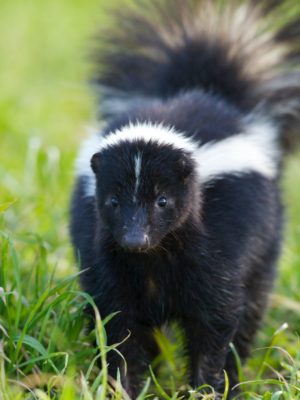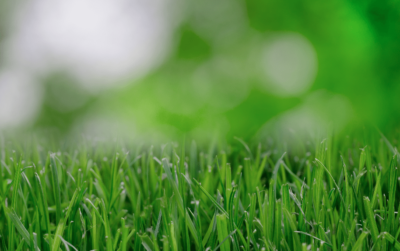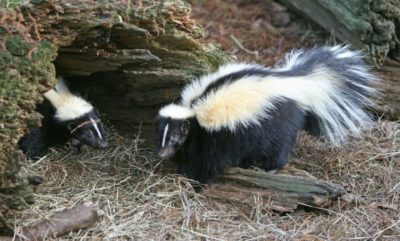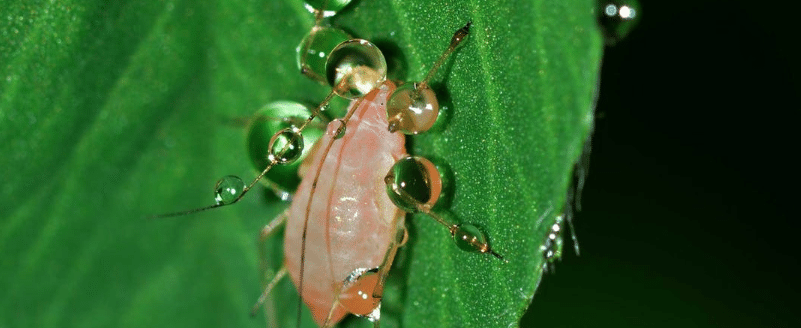How to Keep Skunks out of Your Yard
 Getting rid of skunks from your yard doesn’t have to be a stink. Although some skunks can be domesticated, most are wild creatures that can wreak havoc on your home and garden. The good news is you don’t have to share your home with a foul-smelling skunk. A few modifications can control your skunk problem and get them gone – for good.
Getting rid of skunks from your yard doesn’t have to be a stink. Although some skunks can be domesticated, most are wild creatures that can wreak havoc on your home and garden. The good news is you don’t have to share your home with a foul-smelling skunk. A few modifications can control your skunk problem and get them gone – for good.
Signs of a Skunk Problem
Spotting skunks in your yard is no easy feat. Skunks are nocturnal and typically only come out during the day if they’re hungry or rabid. One of the most telltale signs of a skunk invasion is the stench of their infamous spray. Household pets may have been sprayed and smell of the musk.
Another sign of skunks is that the creatures tend to burrow in yards. They leave behind holes with a diameter around four inches. Skunk holes typically have a cone-shape.
The biggest complaint about skunks is that they are scavengers. Skunks target corn and will eat the lower ears. They are also known for raiding chicken coops to steal eggs and sometimes a chicken as well. Skunks will also pilfer garbage cans to search for food.
Tips to Keep Skunks Out of Your Yard
Remove Food Sources

One of the worst things you can do is feed a skunk — even if you’re doing so unintentionally. Make sure all trashcans are covered with secured lids. If you have a vegetable garden, you should put up a low mesh fence to keep skunks away from your crops. As an extra deterrent, you may find that surrounding the perimeter of your garden with cayenne pepper is useful. Also, feeding any of your pets outdoors can definitely attract skunks to your home. Feed household pets inside and don’t put out low-hanging bird feeders.
Keep the yard clean. Remove any seeds and berries on the ground since they can be a food source for skunks. Rake any leaves from the yard since they could be concealing berries or seeds.
Prevent access to chicken coops to stop the skunks from raiding at night.
Remove Shelters (A.K.A. Skunk Exclusion)
Another way to get skunks out of your yard is to stop them from finding shelter on your property. If you have a woodpile or logs in your yard, the skunks can use them for hiding. Piles of brush should also be eliminated since they can act as temporary skunk habitats. Put wire fencing over burrows to prevent skunks from occupying them. Skunks can also make homes under decks and sheds- fashion barriers around these structures to eliminate any entry points. If you suspect a skunk is sheltering beneath a deck or shed, don’t attempt to trap them on your own. Getting sprayed by a cornered skunk can be very serious.
Use Bright Lights
A bright light can easily frighten skunks away since they are nocturnal creatures. Some homeowners decide to set up spotlights in their yards as skunk deterrents. However, running a light all night long may irritate neighbors and cause a big surge in your monthly electric bill.
Try Automated Sprinklers
Skunks are very skittish creatures and will often get scared away by electronic repellents such as automated sprinklers. Using motion sensors, the sprinkler will come on and squirt the skunk with water. It could cause skunks to skulk off and never return again. However, placing automated sprinklers in all areas of the yard where you wish to prevent skunks from entering could become costly.
What to Do if You Get Skunked: How To Stop The Odor
 Unfortunately, if there are wild skunks around there’s a chance that you’ll get skunked. There’s no ignoring the smell of a skunk’s distinct and offending spray. Although in some cases the odor will eventually fade, many times the stench will permeate through the walls of your home and into the furniture. A skunk’s spray can also affect humans and animals when they come into contact with the rodent. The following are a few tactics you can do to get rid of the awful stink.
Unfortunately, if there are wild skunks around there’s a chance that you’ll get skunked. There’s no ignoring the smell of a skunk’s distinct and offending spray. Although in some cases the odor will eventually fade, many times the stench will permeate through the walls of your home and into the furniture. A skunk’s spray can also affect humans and animals when they come into contact with the rodent. The following are a few tactics you can do to get rid of the awful stink.
Pet and Human Stench Removal
Household pets are prone to getting sprayed by a skunk. Dogs especially are naturally curious animals and will have their curiosity rewarded with skunk spray. Although there are skunk odor removal products for purchase at pet stores, home remedies are just as effective.
To start, make your own odor-fighting solution by mixing together a quart of hydrogen peroxide, a quarter cup of baking soda, and a teaspoon of mild dish detergent. Apply the mixture generously to the animal’s fur while being careful not to get the solution into the eyes. Don’t allow the solution to sit on the animal. Rinse immediately and shampoo as normal.
Luckily, the same solution used for pets can be applied to humans as well. If a skunk’s odor has gotten into your skin, hop in the shower right away. Wash the skin with the hydrogen peroxide solution and rinse thoroughly. If the smell is still apparent, repeat the process.
Keep in mind that some old wives’ stories about skunk smell removal have been proven wrong. For instance, tomato juice simply masks the odor of the skunk—the juice doesn’t remove the smell.
Backyard Odors
Even if you believe a skunk is long gone, the animal’s stink may linger on furniture and other yard items. Bleach is an effective deodorizer to use on backyard items. Mix one parts bleach with nine parts water for an odor-fighting solution. Scrub furniture, sheds, wagons, and whatever else in the backyard the skunk targeted. Rinse generously using water from your hose.
De-Skunking the House
Place any smelly household items, such as clothing items and blankets, immediately into your washing machine. Use normal laundry detergent mixed with equal parts baking soda. Set the washing machine to the highest heat setting and dry items immediately in the dryer or with direct sunlight.
In some cases, you may not be able to pinpoint the exact location of the skunk stench. If this occurs, place small bowls of vinegar around the house to absorb the smell. Opening the windows and running any ceiling fans is also useful. If the smell is still apparent by the next day, shampoo your carpets and your furniture.
Professional Skunk Treatment in the Carolinas
Do you have a wildlife control problem that you can’t seem to fix? Skunks are volatile creatures and may still hang around despite the modifications made to your yard. Don’t deal with a skunk problem all on your own. Allow the professionals at Carolina Pest Management assist you with remedies to combat skunks and other rodents. Our company is family-owned, environmentally sensitive, and treats all wildlife humanely. Contact us for a consultation today!


